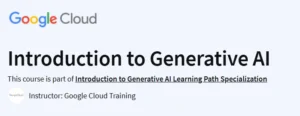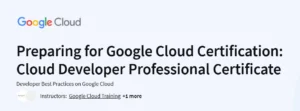What will you learn in Project Planning: Putting It All Together Course
Analyze and define the core components of the project planning phase, including tasks, milestones, and work breakdown structures.
Estimate project timelines using techniques like critical path, team-based estimating, and capacity planning.
Create and manage budgets, track expenses, and navigate procurement processes with ethical considerations.
Implement risk management: identify, categorize, prioritize, mitigate, and communicate risks.
Design a communication plan and organize project documentation for clarity and stakeholder alignment.
Program Overview
Module 1: Beginning the Planning Phase
⏳ ~4 hours
Topics: Purpose of planning, distinctions between tasks and milestones, work breakdown structures.
Hands-on: Create WBS and milestone structures, practice plugin task–milestone alignment.
Module 2: Building a Project Plan
⏳ ~6 hours
Topics: Components of a project plan, time-estimation techniques, capacity planning, critical path methodology.
Hands-on: Develop a Gantt-chart project schedule and estimate durations using best practices and plugin tools.
Module 3: Managing Budgeting & Procurement
⏳ ~4 hours
Topics: Project budgeting components, cost tracking, procurement process, documentation (SOW, ethics).
Hands-on: Build project budgets, craft statements of work, and practice procurement reflections.
Module 4: Managing Risks Effectively
⏳ ~4 hours
Topics: Risk identification tools, risk categories, mitigation strategies, and stakeholder communication.
Hands-on: Develop a risk management plan, assign ownership, and prioritize risk responses.
Module 5: Organizing Communication & Documentation
⏳ ~3 hours
Topics: Communication planning, documentation best practices, centralizing project artifacts.
Hands-on: Draft a communication plan and structure project documentation repositories.
Get certificate
Job Outlook
Prepares you for roles like Project Coordinator, Junior Project Manager, or Scrum Master by covering essential planning-phase skills.
Supports attainment of PMI’s CAPM credential, with 100+ hours of formal education credited.
Part of a six-course certificate; completion offers entry-level career readiness in project management.
Specification: Project Planning: Putting It All Together
|
FAQs
- No prior PM experience is required.
- The course starts with planning fundamentals for beginners.
- Labs and exercises guide learners through creating WBS and milestones.
- Prior experience may help with faster comprehension of advanced topics.
- Best for learners willing to practice real-world PM tools.
- Each module includes hands-on exercises.
- You’ll create WBS, milestones, and project schedules.
- Budgeting and procurement exercises mimic real-world scenarios.
- Risk management labs reinforce prioritization and mitigation skills.
- Communication plan creation ensures practical application for stakeholder engagement.
- Ideal for Project Coordinator or Junior Project Manager roles.
- Prepares learners for Scrum Master or agile-supporting roles.
- Supports PMI’s CAPM credential preparation.
- Provides foundational skills for managing project lifecycles.
- Enhances employability in entry-level PM positions.
- No single capstone project is included.
- Modules are standalone with practical labs.
- Encouraged to integrate exercises into your own project.
- Allows flexibility to practice planning in varied scenarios.
- Hands-on tasks still provide strong skill-building experience.
- Total duration is ~21 hours across all modules.
- Most learners finish in 1–2 weeks with moderate effort.
- Hands-on exercises may require additional time for practice.
- Beginners should allocate extra time for familiarization.
- Flexible pacing allows learners to balance study with work or other commitments.





